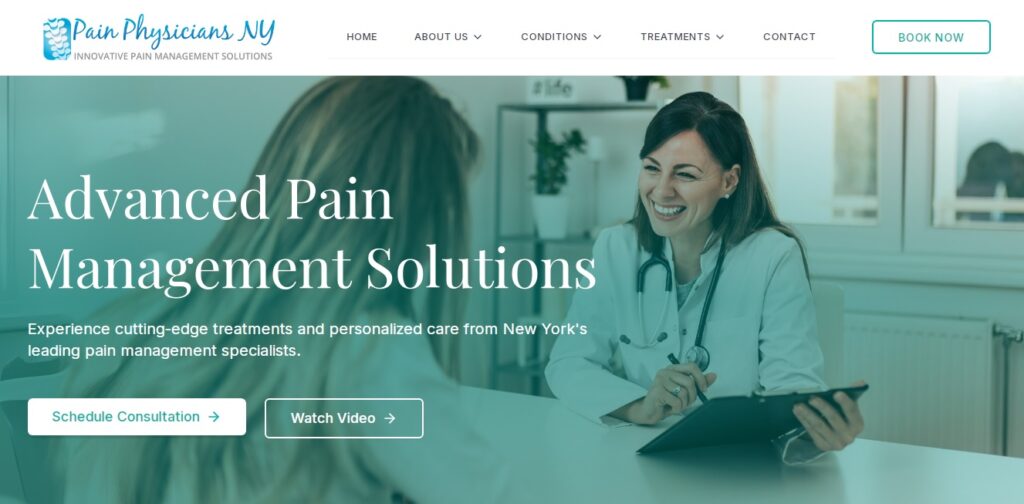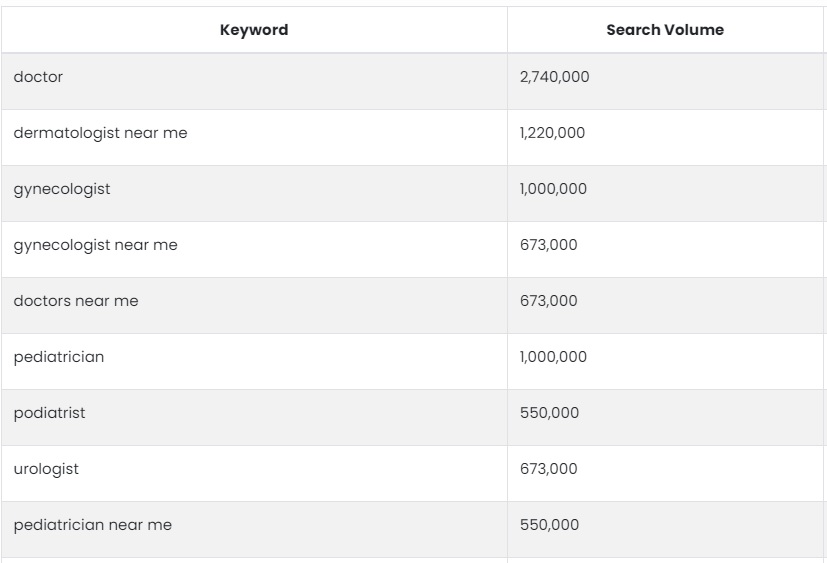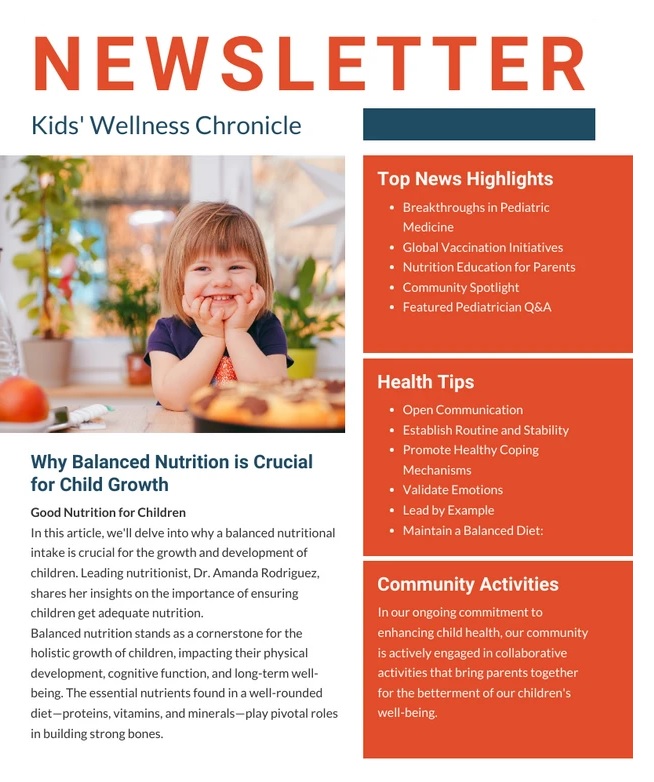
As people’s reliance on digital technologies continues to increase, patients in need of medical services often turn to the internet for information. This has created an urgent requirement for medical practices and physicians to move beyond traditional marketing and advertising methods and embrace digital transformation in order to reach a larger audience in a cost-effective way. Digital marketing offers multiple ways to engage with patients and improve patient outcomes.
If your run a medical practice, there is no way you can ignore digital marketing anymore. To be found online by potential patients and grow your practice, you need to effectively implement digital marketing strategies.
Why Physicians and Medical Practices Need Digital Marketing
Digital marketing has ample benefits to offer for doctors, medical practices and clinics. It enables healthcare providers to position their practice online in order to connect with and attract patients to their practices.
Think of a patient looking for certain medical services. It is only convenient for them to conduct a quick search on Google to find physician clinics, visit websites, read online reviews and book an appointment. If you plan to be found online by potential patients, you need to build a robust online presence by using well-structured digital marketing strategies. Not positioning your practice online simply means missing out on a large chunk of potential patients.
Here are the main benefits that employing various digital marketing tactics will bring to your clinic or medical practice.
Improved Reach and Visibility: Boost the visibility of your medical practice or clinic by reaching potential patients via different digital platforms and channels where they spend most of their time. By applying strategies such as search engine optimization (SEO), social media marketing and content marketing, you can put your medical practice and services in front of the target audience.
Higher Patient Engagement: Digital marketing offers various channels through which doctors can interact with patients in a meaningful manner and gather valuable feedback for better communication and care delivery. Medical practices can utilize telemedicine and patient portals to increase the speed and efficiency of appointment scheduling and make remote consultations easier.
Online Reputation Management: One key benefit of digital marketing for doctors is the management of online reputation. A lot of patients use the internet to find information about local doctors and physicians. You can encourage patients to leave positive reviews about your clinic and services by responding to their queries and concerts in a timely manner. You can also choose to demonstrate patient testimonials on your medical clinic website to build credibility.
Competitive Advantage: Adoption of digital technologies will quickly give you an extra edge in the healthcare industry. This will help you improve communication with patients and ensure better outcomes. Focus on building an overall digital experience that offers greater satisfaction to patients. With a host of digital marketing technologies and tools, you can outshine your competitors and attract potential patients requiring modern and top quality medical services.
Targeted Advertising: Implement a digital marketing strategy that enables you to show your ads to only those patients who are specially interested in your healthcare products and services. There are multiple criteria, on the basis of which you can target various segments of the target audience.
Valuable, Data-Driven Insights: The best thing about digital marketing is that you can easily measure the performance of your campaigns. Whether you want to monitor your website traffic and engagement, measure the progress of your social media campaigns or track patient behavior, you have multiple analytics tools at your disposal to do that. Based on the gathered data and insights, you can optimize your marketing strategies and campaigns further for better results.
Digital marketing allows healthcare providers to concentrate their efforts in a way that makes it easy to reach specific audiences and leads to improved patient engagement, satisfaction and retention.
Key Components of an Effective Medical Digital Marketing Strategy
The ROI from digital marketing is much higher than traditional marketing, provided you approach it with an effective strategy. Equipped with a well-defined strategy that aligns with your healthcare marketing objectives and goals, you can give your medical clinic or practice a solid online presence while ensuring its long-term growth. The overall success of your digital marketing efforts depends on what components you include in your strategy and how you implement it.
Here are the major components that you should add to your strategy to get the most out of your digital marketing efforts.
Website Design
Having a well-designed website will keep you connected to patients looking for medical services online, round the clock. So, it is crucial to create a website that is user-friendly and looks good on all screen sizes.

A medical clinic’s website is like a friendly spot where potential patients can get details about the services provided by the clinic, schedule appointments online and go through doctor profiles as well as seek virtual medical consultation. The website can also feature testimonials from existing patients and operate a blog to keep patients up-to date with the latest news and information.
Make sure your website has the following features:
Mobile-Optimized: Most people use mobile devices to find healthcare services online. If your medical clinic website isn’t optimized to render well on smaller screens, you will fail to capture potential leads. Plus, Google and other search engines have prioritized the indexing of mobile versions of sites.
Fast Download: Your website needs to perform exceptionally well. Most consumers can’t wait more than 3-4 seconds for a website to download. If your website takes more than that, they will leave immediately.
Accessibility: Designing an accessible website is required by law. According to the ADA (Americans with Disabilities Act), it is compulsory to make your website easy to access and use for people with disabilities.
Eye-Catching CTAs: Create eye-catching call-to-action buttons for patients to book appointments and get in touch with your clinic. Place all such buttons in locations where they are visible immediately upon looking.
A well-crafted website will provide the target audience with a seamless experience and keep them interested and engaged.
Content Marketing
Production and distribution of content is a surefire way to improve the search engine rankings, increase brand awareness, build authority and trust and stimulate people’s interests in your healthcare services.
That is why creation of top quality, relevant and well-structured content on a consistent basis should be a vital component of your digital marketing strategy. Content can be created and shared through a variety of channels with an aim to attract and engage the target audience. Most of all, content marketing helps you build genuine, long-term relationships with your existing and new patients. Ultimately, all of this leads to improved lead generation for your practice.
Healthcare service providers can produce content in multiple forms and formats. Here are the most important content types:
Blog Posts: Pick topics that attract the right traffic and strike a chord with your target audience. Do research in advance and use a content calendar in order to publish posts without missing deadlines. Some popular medical blog post topic ideas include general surgery, vaccination, mental health, psychology, healthy eating, clinical research, medical myths, medical insurance etc.
Video Content: When it comes to digital marketing for physicians and surgeons, video content should always be a crucial part of the overall plan. Patient testimonials, health tips and procedural explanations are all highly suitable topics for creating video content that will hold people’s attention.
Infographics: Use this content format to explain complex medical topics for patients in a simple, concise and easy to understand manner. Select the right color scheme and typography and keep your visual language consistent with your branding. Step-by-step instructions to do something, symptoms chart and information on lifestyle changes are good examples of infographic content.
Downloadable Resources: Think about creating e-books and guides to help patients make better healthcare decisions, manage lifestyle changes or better understand the nature of certain medical conditions. Offer these valuable resources for your patients and prospects to download for free.
Webinars: Align the content of your webinars with the questions and concerns of your intended audience. These online presentations provide physicians an effective way of engaging new patients and maintaining patient relationships. Based on your medical practice, you can easily come up with a wide range of educational and interesting ideas for your webinar presentations.
If you already have a medical services website and an on-site blog, you should perform an audit to get a clear picture of where your current content stands as of today before stepping up new content creation.
Search Engine Optimization (SEO)
Having an attractive website isn’t enough. You need to consistently drive organic search traffic to the website to grow your medical practice. That is exactly where the crucial role of SEO comes into play. In fact, search engine optimization remains at the core of an effective digital marketing strategy.

If you are a dermatologist, your website should appear on the first page of results for terms such as “best dermatologist near me”, “best skin doctor near me”, “best physician near me for skin disease”, “skin specialist in [your city]” etc. Proper search engine optimization will make your website appear at the top of search engine results when people search for medical services you provide.
Here is what you need to do:
Keyword Research: By targeting the right healthcare keywords, you will be able to boost the search rankings of your website content and attract more patients. Based on your specific needs, you should conduct research to identify those keywords that will bring the right kind of traffic to your website.
Website Optimization: Aim for a mobile-friendly website design, as most visitors will access your website through their phones. Make sure your website downloads fast and offers simple navigation for patients.
Local SEO: Inclusion and optimization of your practice in Google Maps and Google My Business are vital for local SEO. Localize your website content. Target keywords relating to local searches to attract patients in your vicinity who are actively looking for the healthcare services you provide.
When your website ranks higher in SERPs, you will get more qualified leads from those looking for healthcare services online. Ultimately, higher search rankings translate to the growth of your medical practice.
Social Media Marketing
A useful component of digital marketing, social media platforms allow physicians and surgeons to engage and interact with patients on a regular basis and build a community around your medical practice. Platforms like Facebook, Instagram and LinkedIn are actively used by a large number of healthcare consumers, providing you an excellent opportunity to reach your ideal patients.
Here are some useful social media marketing tips for healthcare providers:
Educate Your Audience: Start conversations around topics that relate to important health and medical issues. Share useful tips and advice to help existing and new patients improve their quality of lives. Keep your followers up-to-date with health tips and new treatment procedures.
Share Patient Success Stories: You shouldn’t just feature patient success stories on your website, but you should also share them on social media to build credibility for your practice and highlight your expertise. However, don’t forget to seek permission from those whose success stories you share.
Respond to Questions: A healthcare provider should never ignore the voice of the patient. Whether it is a question, comment, enquiry or online review, you should never disregard any of these. Staying responsive on social media will help you build credibility and engage fans and followers.
Establish Communication Protocols: When it comes to using social media for physicians and medical practices, it becomes ever more important to strictly follow a set of rules and guidelines. You should know how exactly to respond to negative reviews and comments on social media. In particular, you should consider patient privacy and HIPAA rules and regulations.
It’s important to match your medical content with the correct social media platform. For example, educational content and health advice are appropriate for Facebook posting whereas industry articles and expert opinions and insights are well-suited to a more professional network such as LinkedIn. You may want to start with one or two platforms at first and then expand slowly.
Email Marketing
In digital marketing, emails remain one of the most effective tools for communicating and building relationships with patients.
After patients opt in to receive your emails, they look forward to getting personalized information regarding healthcare, exclusive offers and your products and services. So, you need to stay in touch with your patients via emails and send them content that is in line with their likes and interests.

Send Email Newsletters: There are ample newsletter content ideas to keep your email subscribers engaged. Discuss topics that relate to the concerns of your target audience. Include newsworthy information such as introduction of a new service, hiring of new doctors, practice redesign etc.
Offer Exclusive Content: Make your emails stand out with valuable resources and guides for patients. A guide to living well with a chronic condition is a good example. You can give expert advice on how to manage emotional and lifestyle changes that a chronic disease brings with it.
Personalize Your Emails: Gather customer data to create personalized emails. Divide your subscribers into multiple segments and target each segment with tailored emails based on demographics or interests.
The good news is that you don’t have to spend much time on setting up and sending emails in a timely manner. Email automation is a strategy to free up your valuable time and focus on running your business.
Pay-Per-Click (PPC) Advertising
The PPC (Pay Per Click) advertising model is designed to get immediate results from digital marketing efforts. While you are still building organic rankings and traffic, you can incorporate a pay-per-click strategy to drive qualified leads to your medical practice and services website within minutes of your ads going live. It is a cost-effective means of lead generation for small businesses.
Here are some tips to get the most out of your PPC advertising:
Landing Page Optimization: To maximize conversions, it is essential to create an effective landing page. Make sure your landing page is a perfect match for your PPC ad to boost Quality Score. Avoid adding elements that will distract visitors from the call to action. In any case, don’t forget to make your landing page responsive so that it renders well across mobile devices.
Long-tail Keywords: Going for specific and detailed phrases will increase the chances of your product showing up in search results. This is because long-tail keywords are much less competitive than short-tail ones.
Check Your Quality Score: Find out how Google’s Quality Score impacts the ranking and cost per click of your ads. Optimize the keywords and the ads to boost the quality score and the performance of the campaign. Proper optimization can lead to significant improvement in the results.
Negative Keywords: Since you don’t want your ads to appear for irrelevant search terms, you need to use negative keywords to prevent it. Including negative keywords finetunes your targeting and helps you reach the most suitable type of audience for qualified sales lead generation.
The best thing about the PPC model of digital marketing is that you will pay only when people click on your ads. With PPC, you can target people on the basis of their location, interests, age, income, device etc.
How to Measure the Success of Your Medical Digital Marketing Efforts
To find out how your digital marketing efforts are paying off, you need to track the results of each of your campaigns. Large businesses and enterprises have entire teams in place to monitor, analyze and optimize campaigns. As a medical practice or healthcare services provider, you need to use the right tracking tools and focus on the right metrics to gather valuable data and insights.

Use Analytics Tools: Google Analytics (GA) is a free and valuable tool that all kinds of businesses can use. With this tool, you can monitor the performance of a website or an app. This tool is a preferred choice of professionals, because it integrates with Google Ads and Search Console as well.
Select the Right Metrics: Website traffic, audience engagement, conversions and ROI are key metrics that you should keep a close watch on. You need to track the number of visitors to your healthcare website as well as the sources of traffic. Likewise, you need to track audience engagement to evaluate the performance of your online content. Above all, you need to track the actions taken by visitors and ultimately calculate the ROI of your medical digital marketing efforts.
Refine Your Strategy: Once you have all the required data at your disposal, you are in a good position to analyze and make well-informed decisions in order to fine-tune your digital strategy further for better results. For example, you can commit more strongly to successful channels or improve your online content creation strategy on the basis of the preferences of your target audience.
Digital marketing for medical practices and doctors requires hard work and improvement on a constant basis. As your medical practice grows and you leverage multiple digital channels for your marketing, measuring the success of your digital marketing becomes challenging. To cope with this, you will need to invest in advanced analytics tools and technologies for deeper insights.
Digital Marketing for Doctors: FAQ
Q: Why should I embrace digital marketing?
A: Consider these interesting stats:
77% of patients use the internet to search for the required medical services and arrange medical visits. 94% go through online reviews before selecting a healthcare provider or physician.
38% healthcare providers agree that digital marketing is vital for reaching more patients whereas 36% consider it essential for building and managing their online reputation.
What does this tell you? You can’t look at digital marketing as an option anymore. It is now increasingly vital for physicians, doctors and medical practices to implement digital marketing strategies in order to reach patients who are actively looking for different types of medical services. An effective digital marketing strategy will help you boost lead generation and build better connections.
Digital marketing offers cost-effective ways to generate a greater ROI while helping you reach a larger audience.
Q: How long does it take to get results from digital marketing?
A: It is hard to pinpoint an exact timeline, because there are multiple factors that will influence digital marketing results. The level of competition, the type of digital marketing strategy you implement, the type of audience you seek and the consistency and quality of your marketing efforts will determine how much it is going to take to see results. You can expect to see an increase in website visits and social media interactions within 0-3 months while seeing a rise in lead generation and rate of conversions can take 3-6 months or longer than that.
Q: Does my practice need local SEO or organic SEO?
A: If you are a medical practice that needs local patients, you should implement local SEO strategies. Organic SEO is for those practices that aim for broader online visibility and national or worldwide reach.
Q: What do I need to get started?
A: To start digital marketing for your medical practice, you’ll need a website in the first place. Along With a clear understanding of your target audience and a strategy which includes SEO and content marketing, you will be ready to begin. Get in touch with us for a free consultation to find out whether you are ready to get started with digital marketing for the growth of your medical practice.
Need Help with Your Healthcare Digital Marketing?
Digital marketing allows healthcare providers to reach a broader audience using various cost-effective platforms. With well-planned and effective strategies and innovative techniques, you can build a solid online presence and connect with prospects while also giving your competition a hard time. If you are a physician or a medical practice looking to leverage digital marketing for growth, feel free to schedule your free consultation with me via a phone call or email.

Leave a Reply